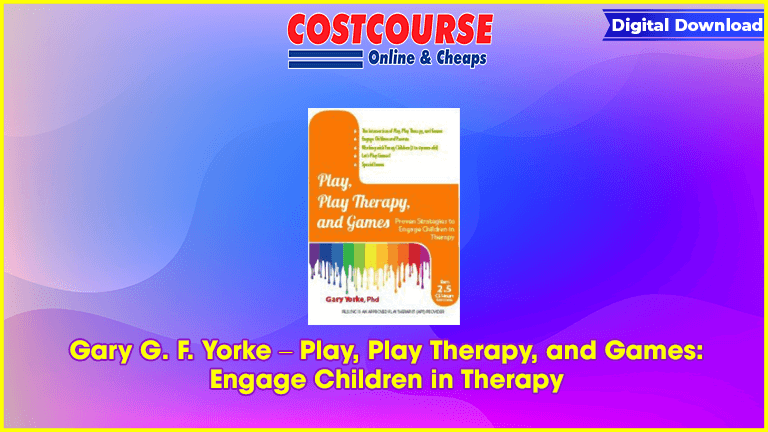Description
This dynamic and engaging workshop is perfect for adding play therapy strategies and techniques to your repertoire.
Gary G. F. Yorke – Play, Play Therapy, and Games: Engage Children in Therapy
The strategies and techniques you will learn in this workshop are suitable for children with a wide variety of challenges, including anger, anxiety, depression, non-compliance, disruptive behavior, and social skill deficits. Dr. Yorke has over twenty-years of experience working with children through play therapy, story-telling, Bibliotherapy, and the use of games. A variety of games will be covered – from checkers and Candy Land, to games specifically developed for counseling and play therapy.
You will learn practical strategies to use immediately for children with ADHD, depression, anxiety, ODD, and more. Dr. Yorke will also discuss strategies for working with preschoolers. A detailed course handbook will provide additional information about techniques and strategies discussed in this workshop, as well as additional resources.
Handouts
Manual (10.1 MB) 146 Pages Available after Purchase
Outline
The Intersection of Play, Play Therapy, and Games
Successful therapists bring a playful attitude and a variety of play therapy techniques, including therapeutic games, to their sessions. Learn how to integrate cognitive-behavioral strategies with play therapy, for ADHD, anxiety, depression and more.
Engage Children and Parents
While working well with the child is typically our priority, success is dependent on parents appreciating, understanding, and supporting our work. Dr. Yorke will discuss techniques that quickly and effectively engage parents and their children in therapy.
Working with Young Children (3 to 6 years-old)
Many therapists shy away from working with very young children. However, with the right strategies and techniques young children can make very rapid gains in therapy.
Let’s Play Games!
As children become older they may resist many of our interventions and shy away from the play room. Games readily engage these children and support therapy. Dr Yorke will review what we can learn from games, how to use games to facilitate therapy, ways to ensure that game play is both fun and therapeutic, specific games, and how games foster therapeutic gains.
Special Issues
The types of techniques discussed in this workshop lead to therapists being actively engaged in therapy. As a result, a variety of special issues must be addressed including self-revelation, cheating, resistance to game play, and including siblings, parents, and friends in sessions.








